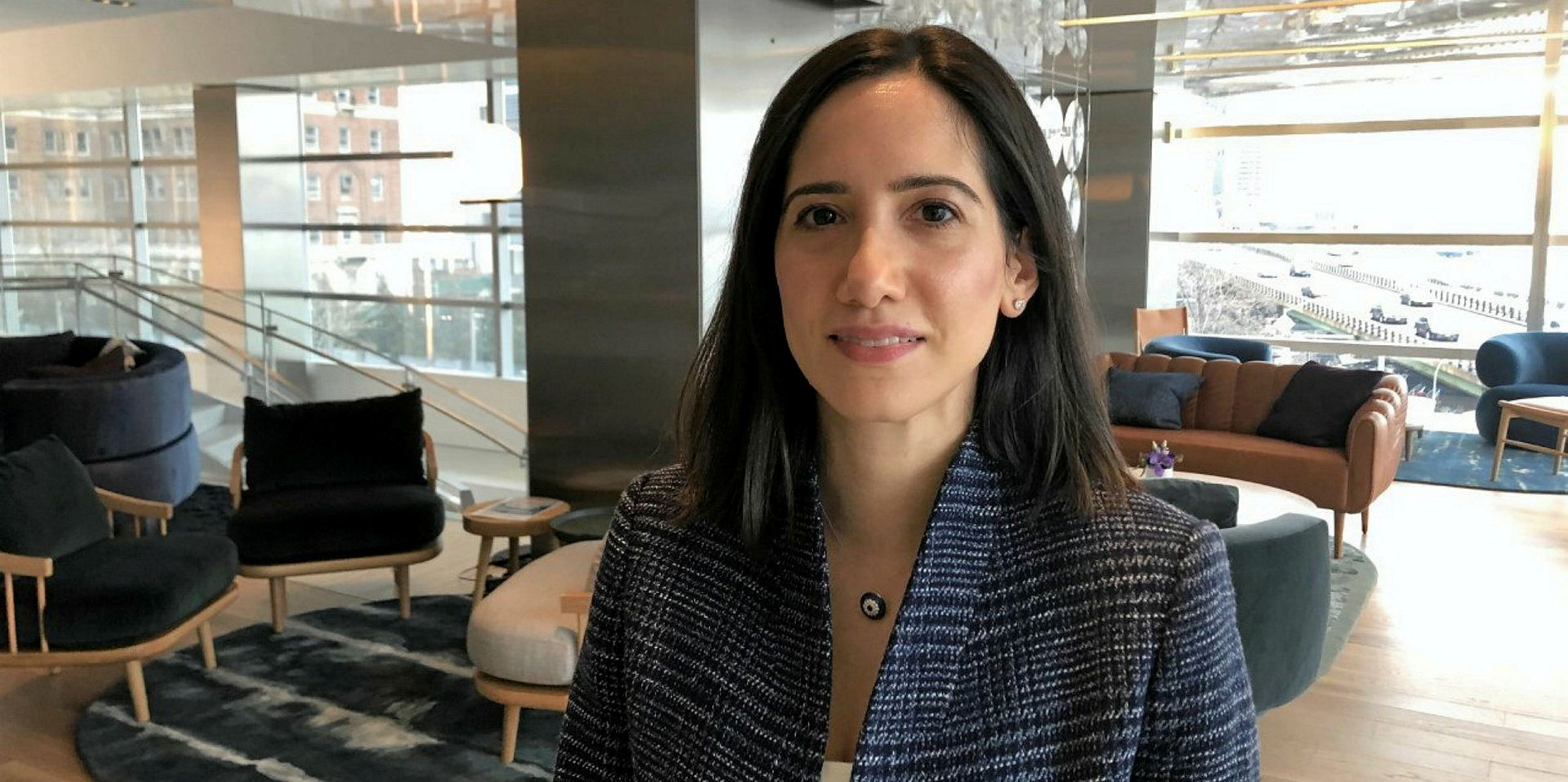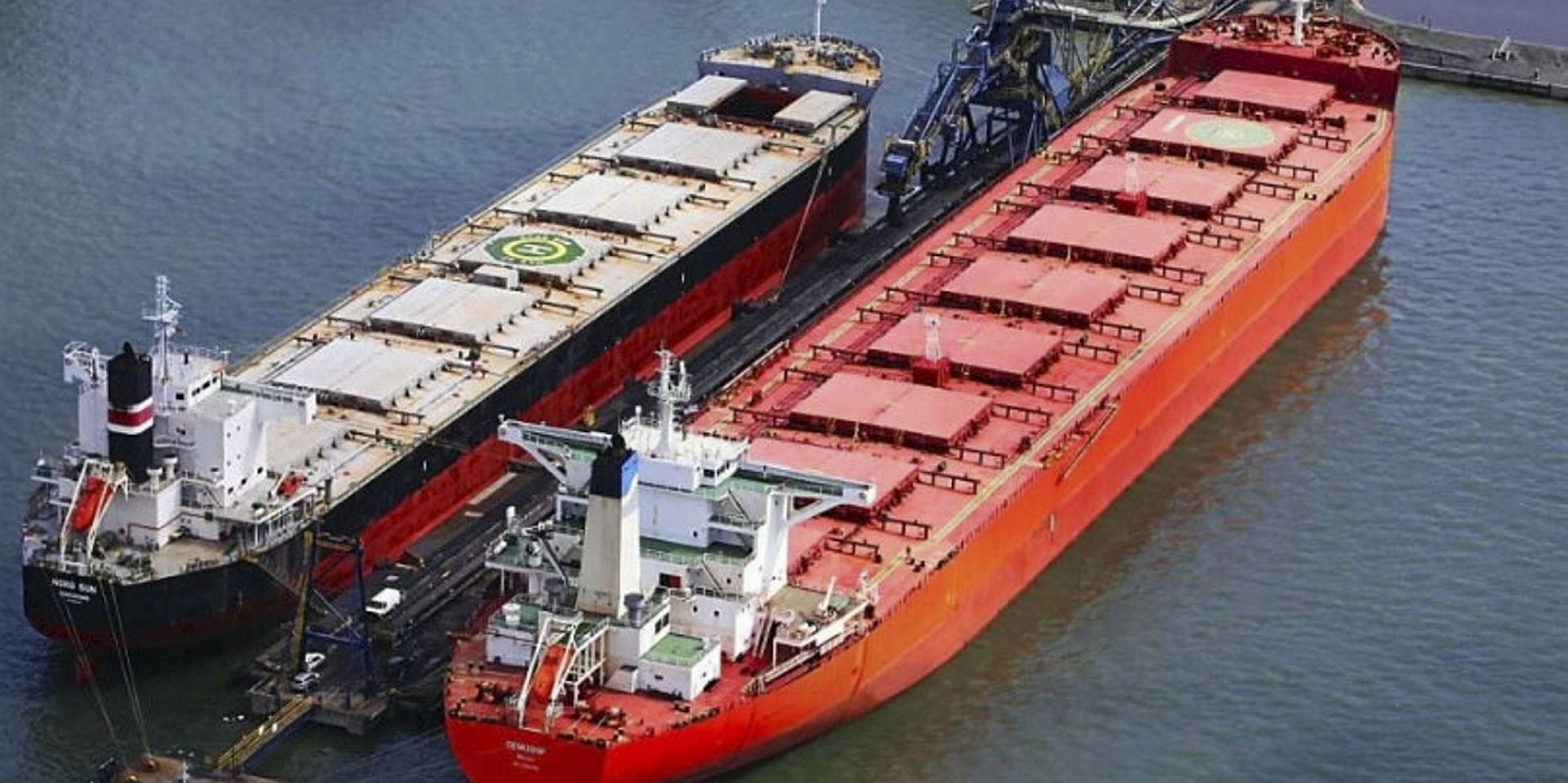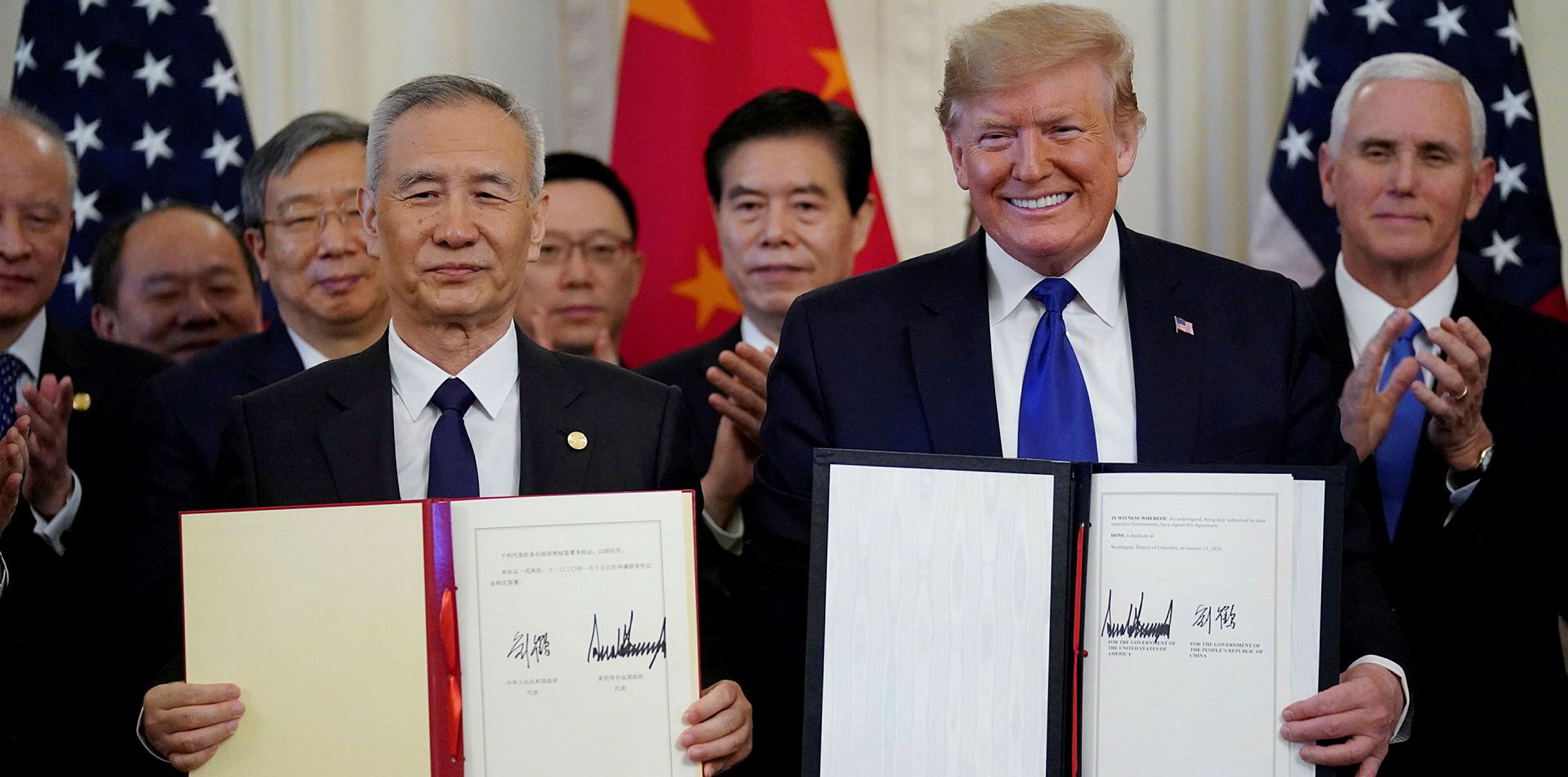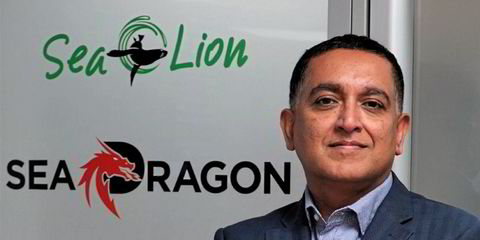Many dry bulk shipowners are keeping their vessels in the Pacific basin while rates remain so low for the sector, the owner of a small bulker outfit says.
An owner is better off seeing what kind of work the bulkers can get there instead of spending the money to sail the ship without cargo across the Atlantic Ocean to set them up for the major Brazil-China route, says Irene Marinakis, vice president of Marinakis Chartering.
"They're hoping that someone's going to get desperate, that the ship is in the right position and they need to get cargo out," she told TradeWinds during the annual Hellenic-American/Norwegian-American Chambers of Commerce Joint Shipping Conference in New York Tuesday.
"Maybe they'll pay the extra $2,500 to $3,000 a day."
About 8,000 bulkers out of about 11,000 on the high seas worldwide are in the Pacific basin, according to Vessels Value.
Her company owns two baby supramaxes, a kamsarmax, a panamax and a handymax. They all run on low-sulphur fuel oil (LSFO) without scrubbers.
Marinakis, 35, has been in shipping for seven years. She is scheduled to participate in a panel discussion on "The Next Generation of Shipowners" at the conference.
The Baltic Exchange Dry Index has dropped to 453 from 1,606 since 3 December.
Its Capesize Index weighted timecharter average has dropped to $3,496 per day from $25,202 per day over the same period. Meanwhile, that rate for the China-Brazil route is down to $2,236 per day from $24,268 per day.
Marinakis said Marinakis Chartering is keeping its five bulkers in the Pacific basin and Far East to find work hauling coal and other dry goods to and from countries such as Indonesia, South Korea and Australia.
Fuel costs play a factor
"Because fuel is so expensive, people are just lingering," she said.
"They'd rather not go anywhere. You do not want to tie up your vessel but you want to wait this out.
"Fuel is expensive. Unless you have a scrubber onboard, it's not worth it."
LSFO in Singapore, for example, had gone from less than $600 per metric tonne to $750 per metric tonne at the outset of IMO 2020, she said.
LSFO in Singapore, used by ships with exhaust gas scrubbers, costs $549 per metric tonne now, according to Ship & Bunker, while high-sulphur fuel oil costs $319 per metric tonne.
Supply certainly outweighs demand in the Pacific basin but China and the rest of Asia still create enough demand for owners to keep their vessels in the region, she said.
"There's always ships around China because they're a major player," she said.
"A lot of cargoes go there. There's demand and there will always be demand.
"It's not changing but it's also how you play the game."
China will come around
China does need, however, to get out of its "perfect storm" of coronavirus, Chinese New Year and weakening economy for rates to improve, she said.
"It's going to take a few months,' she said.
"Unfortunately, there are still so few cargoes going to China.
"We're already in February and the coronavirus is not under control yet."
But the world's second largest economy will come around, she said.
"Obviously for China to be shut down like this is a problem and I know they're trying to fix it," she said.
"I can't imagine they're going to allow it to crumble and completely cripple their market. I think they're going to get it together in the next month, at least get some handle on it."
Demand will always be there
Marinakis Chartering is not overly worried by the low rates — the lowest she and her father, longtime shipowner Markos Marinakis, have ever seen — because there will always be a need for shipping, she said.
You don't go into shipping for quick returns," she said.
"This is the long haul. You go through the cycles. You learn every day."
She is not related to Evangelos Marinakis, well-known chairman of Capital Maritime Partners.
That is not to say that shipping does not keep them up at night every now and then, even during the best of times, she said.
I feel like being in this industry, you're always a little worried so that feeling never goes away but you roll with it," she said.
"You just have to go with it. You've got to stay positive or why else are you in the business?"







